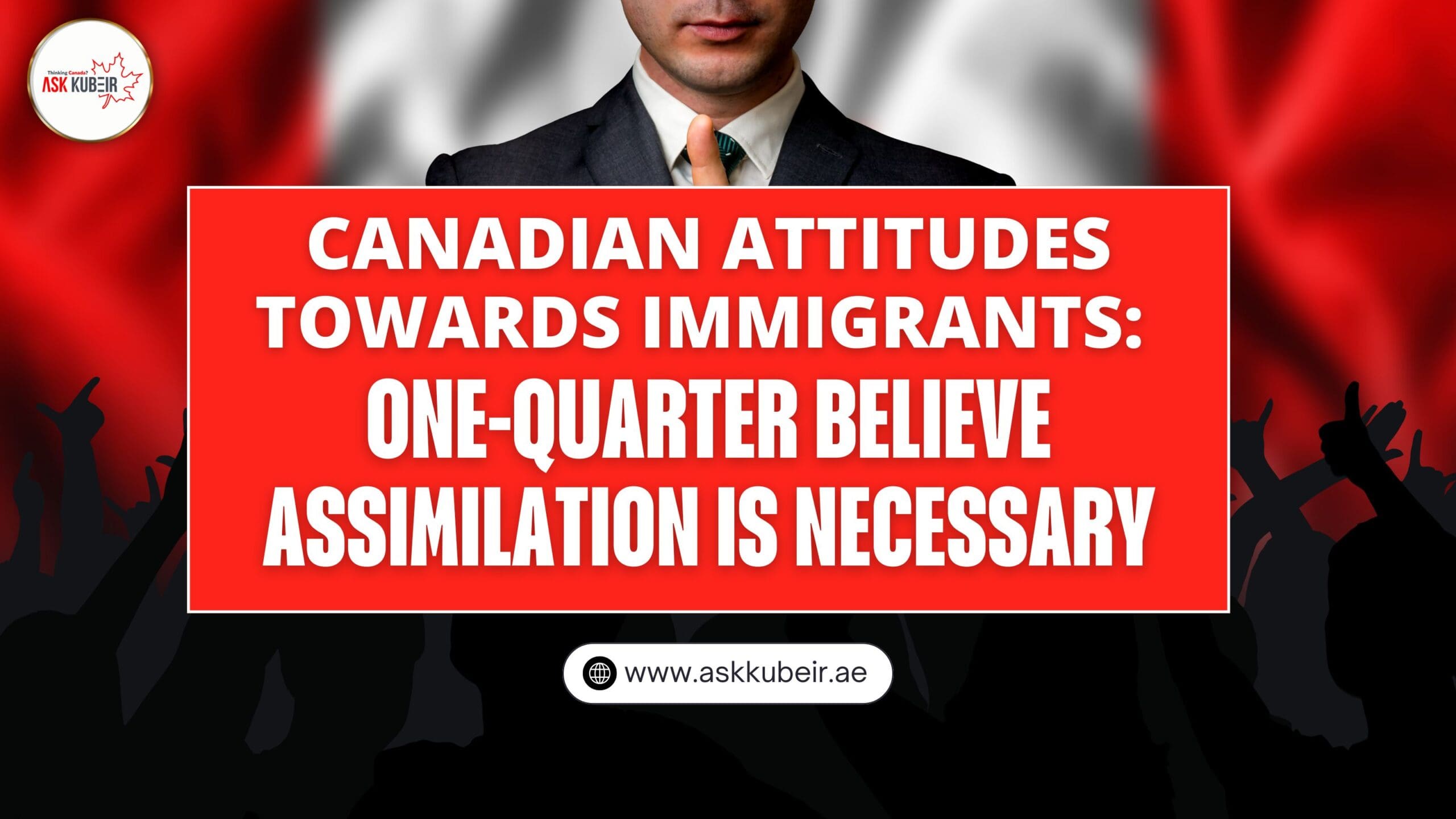
Canada’s immigration policy has long been recognized globally for its openness and inclusivity. However, recent shifts in public opinion reveal complex attitudes among Canadians toward the integration of newcomers and the preservation of cultural identity. A recent national survey, conducted by the Association for Canadian Studies (ACS), has brought to light both supportive and critical perspectives on the presence and integration of immigrants in Canadian society. This article examines these findings, providing insights into the nuanced public sentiments and their potential implications.
Rising Concerns About Cultural Integration
The ACS survey found that one-quarter of Canadians believe that immigrants should relinquish their customs and traditions to better integrate into Canadian society. Notably, this sentiment is particularly strong among Canadians over the age of 55, with one-third expressing this view. The concept of cultural adaptation among immigrants often surfaces in public discourse around immigration, especially in regions such as Quebec, where 33% of respondents favored newcomers abandoning their cultural practices.
Age-Based Perspectives on Cultural Assimilation
The generational divide in opinions on cultural assimilation is pronounced. While older Canadians express a stronger preference for immigrants to conform to local customs, younger Canadians tend to be more supportive of cultural diversity. For instance, only 22% of individuals aged 18-34 believe that visible religious symbols should be avoided by religious minorities for better integration. This age-based disparity underscores the evolving nature of Canadian multiculturalism, with younger generations more inclined toward embracing diverse cultural identities.
Regional Variations in Immigration Attitudes
The survey’s regional findings reveal that immigration sentiments vary significantly across Canada. While a national majority of Canadians express concerns about immigration numbers, the intensity of these concerns varies:
- Quebec: Nearly half (47%) of Quebec respondents believe that immigrants should avoid displaying religious symbols publicly to promote social harmony. This view aligns with Quebec’s distinctive stance on secularism and the display of religious symbols in public spaces.
- Atlantic Canada, Ontario, and the Prairies: In regions such as Atlantic Canada, Manitoba, and Saskatchewan, around 26%-31% of respondents agree with discouraging public displays of religious symbols among immigrants.
These regional variations suggest that attitudes toward immigration are influenced by local social dynamics and historical experiences with cultural diversity.
Concerns Over Religious Expression and Integration
Religious expression among immigrants has become a focal point in discussions of integration. Approximately one-third of Canadians support limiting overt religious symbols, particularly among religious minorities. This viewpoint is most prevalent among older Canadians, with 39% of those over 55 supporting the idea. Among men, 35% hold this belief, while it is less common among women (29%).
Such perspectives may indicate an underlying tension between secular values and the visible presence of diverse religious identities in Canada. However, ACS Director Jack Jedwab suggests that such attitudes risk reinforcing stereotypes and stigmatizing religious minorities, which could exacerbate social divides.
Growing Dissatisfaction with Immigration Policies
Public dissatisfaction with Canada’s immigration policy has increased markedly since the COVID-19 pandemic. A significant portion of Canadians now feel that immigration levels are too high, rising from 49% in 2023 to 64% in 2024. The survey indicates that a growing segment of Canadians perceives a link between immigration numbers and challenges in integration, potentially fueling concerns about economic competition and social cohesion.
Government Response to Public Sentiment
In response to public concerns, the Canadian government recently adjusted its immigration targets, reducing the annual intake from 500,000 in 2025 to 365,000 by 2027. This reduction aims to balance economic needs with the public’s desire for effective integration measures. However, this approach raises questions about Canada’s future demographic landscape and the availability of a skilled workforce to sustain economic growth.
Underlying Biases in Views Toward Specific Immigrant Groups
The survey also sheds light on biases held toward particular immigrant groups, with 51% of those critical of current immigration levels expressing strong negativity toward Muslim immigrants. Additionally, 19% of respondents indicated there are “too many” Jewish people in Canada, while 24% expressed similar views about Indigenous populations. These findings suggest that cultural and religious biases influence attitudes toward specific groups, potentially driven by stereotypes or misconceptions.
Implications of Negative Sentiment on Social Integration
According to Jedwab, the prevalence of negative sentiments toward Muslim immigrants highlights an enduring pattern of stereotyping that could hinder the integration process. Public discourse influenced by such biases risks exacerbating inter-group tensions and complicating the integration journey for immigrants, who may feel unwelcome in their new communities.
Preserving Cultural Heritage Amidst Integration Pressures
While some Canadians advocate for immigrants to adopt local customs, others emphasize the importance of preserving cultural heritage. The survey found that 76% of Canadians believe it is essential to transmit cultural traditions to future generations. Interestingly, Quebecers—who are generally more supportive of cultural assimilation—also show a strong commitment to cultural preservation, underscoring the complexity of Canadian multiculturalism.
Balancing Cultural Identity and Social Cohesion
Canada’s multicultural framework aims to balance respect for cultural diversity with fostering shared national values. However, the rising public sentiment in favor of cultural assimilation suggests that Canadians may grapple with finding this balance. Promoting mutual understanding and encouraging integration initiatives that respect cultural diversity could help bridge these divides.
Conclusion
The ACS survey offers a revealing snapshot of Canadian attitudes toward immigration and cultural integration. While many Canadians value multiculturalism, there is an increasing call for newcomers to adapt to Canadian customs and values, particularly among older demographics. The interplay between cultural preservation and social cohesion will likely remain a pivotal issue as Canada continues to welcome immigrants from diverse backgrounds. Navigating these complexities with policies that promote inclusivity and respect for all communities is essential to sustaining Canada’s reputation as a multicultural society.
Reach out to us at AsKubeir for expert guidance and personalized support. Let us help you turn your career goals into reality and start your new chapter in Canada with confidence!
CONTACT US!
📞 Call us: 04 526 4646
📲 WhatsApp: wa.me/971529693030
🌐 Website: www.askkubeir.ae





